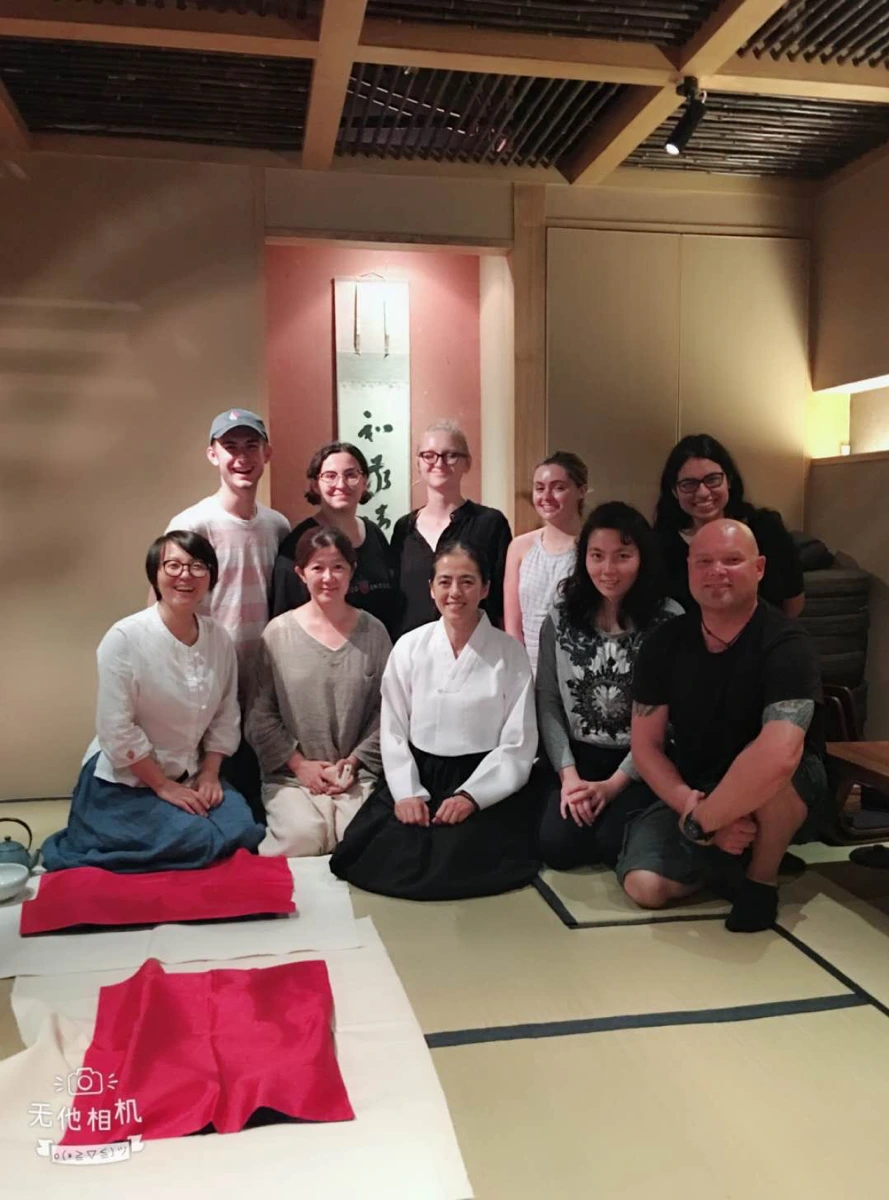
Arizona in Hangzhou is a summer program for undergraduate students provided by the East Asian Studies Department at the University of Arizona. Arizona in Hangzhou was launched in 2018 and took place from June 25 to July 21, 2018. The program achieved great success.
Hangzhou is one of the most beautiful cities in China, renowned for its natural beauty and its historic relics. Hangzhou is a city that combines both traditional and modern aspects of Chinese culture. It is experiencing a revival of traditional culture, such as Buddhism, tea ceremonies and traditional arts. Arizona in Hangzhou 2018 was designed for students to experience the combination of tradition and modernity in Chinese culture and to experience the revival of traditional Chinese culture.
The program’s partner institution in Hangzhou was China Academy of Art, which is considered one of the most prestigious art institutions in China. Students chose between a four-week Culture Track or a seven-week Language & Culture Track. For students choosing the Language & Culture Track, they spent three weeks at the UA campus doing language intensive studies followed by four weeks abroad in Hangzhou continuing with language study (non-intensive) while also taking Culture Track courses. For students choosing the Culture Track, they spent one week doing intensive readings by following the instruction of online courses before they went abroad. Arizona in Hangzhou 2018 offered three culture track courses: Topic in East Asian Studies: Tea & Chinese Culture (EAS 295); Buddhist Meditation Traditions (EAS 333); and Chinese Calligraphy (CHN440).
The program was led by Dr. Albert Welter, Lixia Dong and Yi Wang. Dr. Welter is the leader and the founder of Arizona in Hangzhou. In 2018, Yi Wang was responsible for the language part of the program, while Lixia Dong was responsible for the culture part and the design and execution of the program. China Academy of Art provided the classrooms, accommodation and excellent instructors in Chinese Calligraphy and Buddhist arts.
With the advantage that the summer classes were offered in China, the classes consisted of not only lectures but also many site visits, field studies, workshops and other extracurricular activities. The field trips included trips to Shanghai, Suzhou and Putuo Island. Participants visited Buddhist monasteries such as Lingyin si 灵隐寺in Hangzhou and Xiyuan si 西园寺in Suzhou, and Buddhist art caves such as Feilai feng 飞来峰 and Yanxia dong烟霞洞.
The workshops on tea culture included multiple components:
- A one-day workshop at a tea garden to learn how to pick tea leaves and the primary processing of Dragon Well Tea
- A half-day workshop at Shanghai tea town to learn the casual tea ceremonies and to discuss topics about tea with the owners of tea shops
- A half-day workshop on appreciation of Chinese tea wares taught by local experts
- A half-day Korean ceremony and mindfulness tea ceremony workshop
The workshops on Buddhist meditation included:
- A half-day Chan mediation training in a traditional Chan hall led by a Chan master
- A half-day Chinese Tantric Buddhist meditation training led by a Tantric Buddhist monk
The other extracurricular activities included visiting the tea museum, the west lake, the Leifeng pagoda and Yu Garden; Guanyin belief observation in Putuo Island; practicing Chinese songs through Karaoke; and extracurricular Chinese tea ceremony practices at the tea house. In short, students who attended Arizona in Hangzhou 2018 received unique experiences from participation in such colorful local activities. In fact, for some students, the program became a life-changing event. After returning from Hangzhou, China, some students started to learn Chinese; and some students started to switch their major to Chinese Buddhism. The following is a video made by the students of Arizona in Hangzhou 2018: https://vimeo.com/295279212.
Arizona in Hangzhou 2018 received much support from the local experts in Hangzhou, China. The program coordinators would like to express their thanks to them. These experts included but are not limited to the following:
- Dr. Zhilin Jin from China Academy of Art helped by providing the classrooms and accommodation at the China Academy of Art
- The famous painter and tea ware artist Haizhong Lin shared his knowledge of tea ware appreciation with students
- The Buddhist sculpture artist A Bao guided students visiting Feilai feng and Yanxia dong
- The Korean tea artist Dr. Gang performed the Korean traditional tea ceremonies and mindfulness tea ceremony
- The local tea expert Dr. Yi Xu shared information with students about Chinese tea ceremonies
- The Chinese calligrapher Ce Ren taught students calligraphy
- The tea artist Yun Ni welcomed students to her tea house in Shanghai and shared with them her precious tea and Chinese tea ceremonies
- The owner of the tea house “Ordinary People” in Hangzhou, Dongxing Chen, provided the space for the tea class and students' daily tea ceremony practice
- Bhiksu Huaiyun and Bhiksu Dehan guided the meditation practices
- Bhikkhuni Yuanmiao provided her services to visit Putuo Island
- Uncle Fuqing provided his tea garden for the tea workshop and his wife even prepared lunch for students
Thanks for all the support from the local experts! Because of their selfless support, the students have felt the warmth from Hangzhou that has never been seen before.
For Arizona in Hangzhou 2019, the East Asian Studies Department will provide each student with a $1000 scholarship and free accommodation. The program will provide Culture Track course EAS 295: Tea and Chinese Culture; EAS 484 B: East Asian Buddhism: Focus on the Hangzhou Region; and CHN/EAS399/499: Independent Study. We invite you to join our Arizona in Hangzhou 2019 program!
Lixia Dong
(Contact Email: lixiadong@email.arizona.edu)
Hangzhou Project Coordinator
Department of East Asian Studies
The University of Arizona
Editor: Hannah Greene

